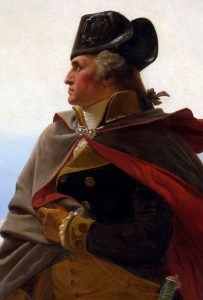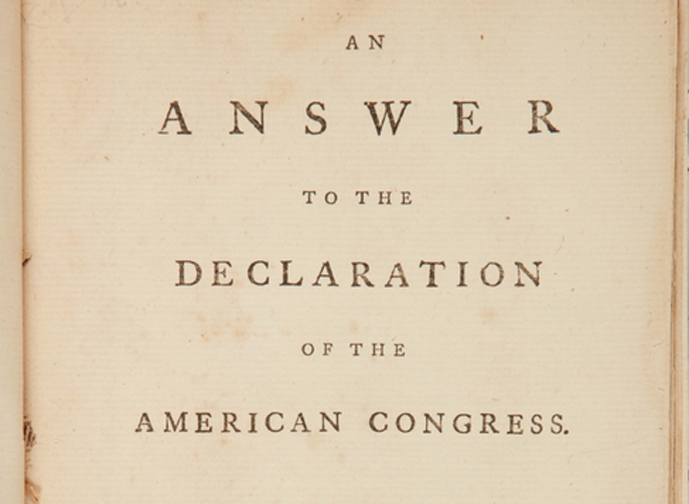
Dear Mr. History:
Some say that George Washington lost more battles than he won and was a lousy general. What’s your take? Sincerely, Wondering About Washington.
Dear Wondering:
Good question, and one that people began debating while the Revolution was still being fought. My take is: general schmeneral – what you really need to understand is that George Washington was a lot of fun at parties.
You heard me right. Washington, the First of Founders, that stern visage on your dollar bill, that great stone-face of Mt. Rushmore, learned as a young militia officer in the mid-1750’s that good leadership sometimes meant downing a few tankards of ale with his soldiers, and he liked it. When running for political office a few years later, he kept with tradition and curried voters and friends with dinners and drinking sessions that featured gallons of ale, wine, rum, cider, punch, and brandy. Wouldn’t have this tradition made the 2012 election easier on us all? Back at Mt. Vernon, Washington constantly hosted visitors and enjoyed playing cards, backgammon, and billiards with them. Visiting nearby Alexandria, Virginia, he was a frequent guest in the taverns. And during the First Continental Congress in the autumn of 1774, he met friends at Philadelphia’s taverns almost every night – sometimes at two locations an evening – and dined in his lodgings only seven times 53 days.
Washington took command of the Continental Army at Cambridge in June 1775, and he put the kaibash on lax discipline but not the carousing that was a huge part of the 18th century lifestyle. The first evening after his arrival he probably attended a drinking party that the officers held where the Adjutant of Col. John Glover’s Massachusetts Regiment was hoisted, “chair and all upon a table, and gave the company a rollicking bachelor’s song.”
This was not an isolated incident. For example, according to his expense accounting, in December 1776 Washington bought 217 bottles of his favorite wine, Madeira, for his headquarters. His staff must have had a very holly jolly Christmas, because a month later he bought a full pipe of Madeira, which was 105 imperial gallons at the time, thank you. They must have swilled a lot of wine that winter to keep warm. Well, 1776 was a tough year for the Americans so let’s not judge.
Washington really shined socially during the winter encampments. Despite his six-foot two-inch height, commensurate weight, and a derriere that, shall we say, gave him plenty of cushioning when he was in the saddle, Washington was an excellent dancer. He and Martha (who usually joined him at winter quarters) frequently hosted officer’s dances, which were the cocktail parties of their time, and his dancing skills made him quite popular with the ladies. Gen. Nathaniel Greene wrote that at one bash in March 1779, Washington danced with Greene’s wife “upwards of three hours without sitting down. Upon the whole we had a pretty little frisk.” Mrs. Greene was a vivacious, popular beauty, and let’s just say that she did not pay that much attention to old George just because he was the boss. Martha Dangerfield Bland, wife of Virginia’s Col. Theodorick Bland, noted that Washington “commands both sexes, one by his excellent skill in military matters, the other by his ability, politeness, and attention.”
Even during active campaigning, Gen. Washington enjoyed a full dinner table. After dining at headquarters he and his officers often cracked hickory nuts, drank Madeira, and presented (sometimes ribald) toasts for hours into the night. A French officer opined that these were the times when Washington allowed some of the stress of command to slip off his big, but none the less human, shoulders.
Mind you that Washington never drank to excess – to do so would have been beneath his dignity as a commander – and that’s a good thing. Nobody wants to imagine a soused Washington slurring “I love you man” to Henry Knox. And he was not known for a sense of humor. George appreciated jokes but rarely cracked one himself. When he did, guests often responded with forced, nervous laughter. But none of this made him a wet blanket. You can’t find too much fault with a guy who was buying the booze, arranging dates, and dancing the night away.
Note also that Washington absolutely deserved these brief respites. He never took days off, even during winter quarters, so he devoted almost every day from June 1775 to December 1783 to defeating British forces. And this returns us to your original question, which I’m sure you, my editors, and anybody still reading would very much like me to answer. So, my take is that George Washington evolved (to use a currently popular political term) over the course of the Revolution to become an excellent commander. His battle record is certainly mixed, but remember that Washington’s actual rank was “Commander-in-Chief,” and in this role, he shined. Innumerable people, factors, and activities influenced the American conduct of the Revolution including, but certainly not limited to, Congress, subordinate commanders, French assistance, diplomatic efforts, financing, and sheer luck. As Commander-in-Chief Washington welded these assets together, brought their benefits to bear on the battlefield, and expertly orchestrated the successful American war effort. The bottom line is that the United States won the war. That, as they would have said in the 18th century, is “the pinch of the game.”
Of course you’ll want to read more, so check out John E. Ferling’s The First of Men: A Life of George Washington, James Thomas Flexner’s Washington: The Indispensable Man, Edward G. Lengel’s General George Washington, A Military Life, or, to see how much he actually spent on wine, George Washington’s Expense Account, by Marvin Kitman.
George would prefer you read the books with a glass of Madeira.
Have any American Revolution-related questions for Mr. History? Ask them in the comments below and maybe yours will be the next one answered.










3 Comments
Interesting stuff. I enjoyed Ron Chernow’s epic bio on Washington, which mentions Washington’s social life. Bruce Chadwick’s book, George Washington’s War, is another good read.
Regarding Washington’s leadership, historian John W. Hall was interviewed for the Reporting the Revolutionary War book project and Hall says that the disaster at New York is actually beneficial because it resulted in Washington maturing as a military strategist. You can watch the video here: http://youtu.be/MWcY82eKuEA
That was indeed a very interesting answer to the question. Answered very well I believe.
Interesting and informative article. We also have to remember that GW also managed to help start the French and Indian War by his inability to control his troops. Not making excuses for his failure to win a major battle, other than Yorktown where he arrived late, GW’s accomplishments are astounding. He managed the Siege of Boston and forced the Brits out by Ticonderoga cannon he had Knox secure, he evacuated 9000 men from Brooklyn and led an orderly withdrawal from Manhattan, wins at Trenton and Princeton, kept his army together despite occasionally awful conditions and seemingly endless rebuffs from Congress, chose, for the most part, excellent fighting generals, and exerted great leadership as the war progressed. He was Eisenhower, Bradley and Patton rolled up in one general. Every time I take out a dollar bill I get a little jolt of pride. Not so when I see Dr. Franklin whose paper is a 100 times more valuable.